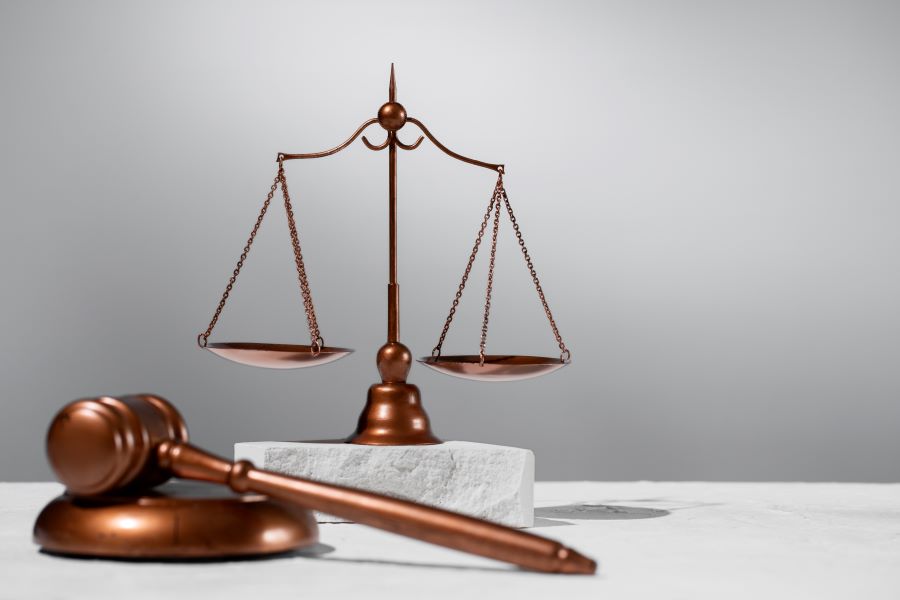If you are injured in an accident in Portland, you should be familiar with the laws that govern personal injuries. Personal injury laws are complicated, and if you don’t understand them correctly, you could find yourself denied a justifiable claim.
In this article, we will examine personal injury laws in the state and provide an overview of how to file a claim and receive compensation. We will also explain pitfalls that you should look out for.
Key Personal Injury Laws in Oregon
In the state of Oregon, most personal injury laws are based on the idea of negligence. This means that someone who has an obligation towards another person does not take adequate care of that person and, in the process, causes him or her injury.
Explanation of Negligence and How it is Determined in Oregon
Different states have different rules regarding fault and the degree of fault that a person needs to prove to collect a claim regarding the laws of personal injury. Oregon follows a “modified” comparative negligence law. What this means is that a plaintiff can collect a claim if he or she bears less than 50% of the total fault for an injury.
The Role of Comparative Fault in Personal Injury Cases
The role of comparative fault can sometimes be difficult to determine. Although you might claim that a person or entity is responsible for injuries that you receive—or even the wrongful death of a passenger—these other parties might be able to prove that you are also partially to blame. And sometimes both sides have plausible arguments to put forward.
If a court determines that you have some fault in causing your injuries, it might affect the amount of compensation that you receive. The modified comparative negligence rule that Oregon follows states that the amount of compensation you are entitled to will be reduced by a proportionate amount of your negligence, as long as that amount is lower than 50%. If it is more than 50%, you will not be entitled to compensation.

Filing a Personal Injury Claim in Portland
When you suffer an injury in Portland that you believe is the fault of someone else, there are a series of steps that you should take to file your claim. These include:
Seeking Medical Treatment
After you have an accident, the first thing you should do is seek medical treatment. This is important for two reasons: If you wait, any injuries that you might have suffered could get worse. Also, any delay in documenting your case could hurt your chances of being compensated. Therefore, you must seek medical treatment immediately.
Talk to a Lawyer
The next step is to have a consultation with personal injury attorneys in Portland. Explain your situation, and the lawyer will tell you whether they believe you have a good enough case for a lawsuit. Before you have your consultation, you should be prepared with every type of documentation you have about the injury. This includes medical records, photographs, and any other evidence you can gather to help prove your case.
Claim and Negotiation
Once you reach the point of maximum medical improvement (MMI), your attorney will draft a “demand” letter for you. This letter explains that you plan to file a claim against the party that you believe is at fault for your injury. After the defendant receives the letter, he or she will have the opportunity to respond. Depending on the response, the defendant may or may not try to negotiate with you out of court to avoid a lawsuit.
If you are satisfied with the defendant’s negotiation terms, you can settle with them. If not, you will continue with the lawsuit. At this point, consulting Portland car accident attorneys or slip and fall injury lawyers in Portland can provide specific legal guidance based on the nature of your accident.
Filing Your Claim and the Discovery Phase
If you decide to proceed with your lawsuit, your lawyer will file it in an Oregon civil court. After this, you will enter the “discovery” phase of the suit. What this means is that each party will investigate the other side’s claims. This can involve sending requests for documents, gathering witnesses, and taking related steps towards preparation for a trial.
Pre-trial Negotiations
Upon completion of the “discovery” phase, both you and the defendant will have an additional opportunity to negotiate. During this phase, your lawyer could conduct negotiations for you, or you can bring in an outside professional from a law firm to conduct mediation. If you are still unable to reach an agreement after this phase is over, you will then go to court.
Trial
If your case gets to the point of having a trial, a court will review your evidence and listen to your arguments, as well as the arguments of the defendant. Personal injury trials can last anywhere from one day to more than a week.
When the trial is over, the court will decide whether you are eligible for compensation and, if so, how much you should receive. If the court does not rule in your favor, then you have the option of appealing the decision.
Keep in mind that the statute of limitations for filing a personal injury claim in Oregon is two years from the date of the accident. If you exceed this amount of time, you will no longer be eligible to file a claim.
Compensation in Personal Injury Cases
Compensation in personal injury cases varies in type and amount. The maximum amount that a person can receive in a personal injury case in the state is $500,000. The exact amount a person can receive in any given case is dependent on several factors.
Types of Damages Available in Personal Injury Cases
Compensation for personal injury claims is often not simply a flat amount. You might receive compensation for different types of damages incurred during a car accident or other type of incident. This could include compensation for medical expenses, but you must be able to prove that injuries were caused by the other party by producing adequate medical records.
You might also be able to receive compensation for lost wages if you can prove that injuries you received from the accident prevented you from going to work. This will also be dependent on evidence. And there are other possible sources of compensation, including pain and suffering.
Factors that Influence the Amount of Compensation
The factors that influence the amount of compensation you receive in any given case depend on several factors:
- The severity of the injuries that you suffer
- How high your medical bills are
- The amount of wages that you lose from your job
- The specifics of your insurance plan and how they apply to injuries
All of these factors could have a bearing on your ultimate compensation amount.
Tips for Protecting Your Rights
To give yourself the best chance of getting a settlement, there are things you should keep in mind:
- Keep records of everything that has happened throughout the process, including documentation, evidence, and when you communicated with relevant parties. You might need to produce this as proof of your claim.
- Be sure you follow the correct procedure following your accident and only provide information to the other party when and in the way suggested by your lawyer.
- If you feel that you have been given an unfair offer, go back and review your case with your lawyer to see if you have additional recourse.
To conclude, if you need further assistance or have any doubts, do not hesitate to contact our experienced personal injury lawyers to help clarify the situation and guide you through the process of securing the compensation you deserve.





